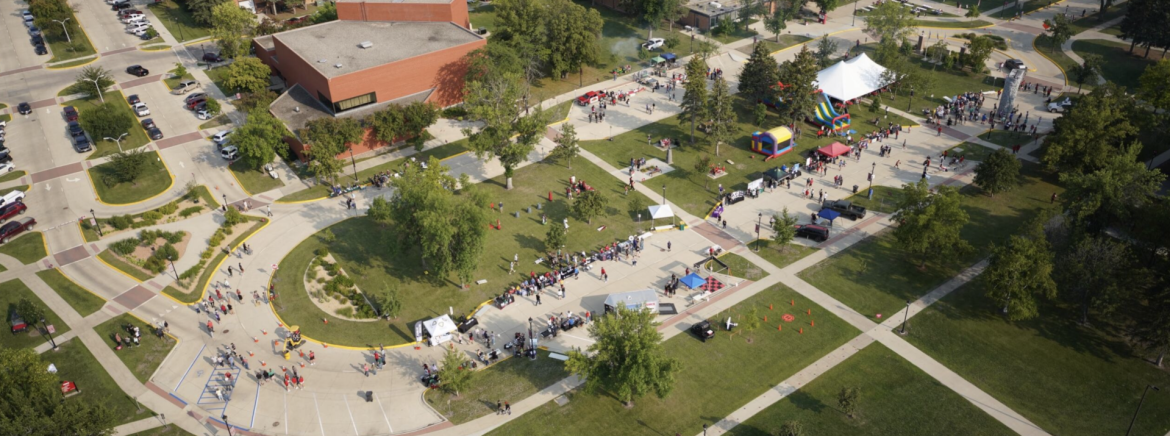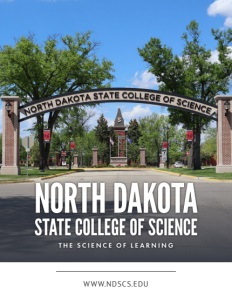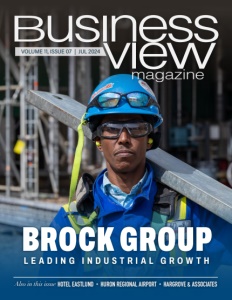North Dakota State College of Science
The Science of Learning
Future ready and a pillar of education and innovation
North Dakota State College of Science (NDSCS) is a pillar of education and innovation in North Dakota. As the second oldest community college in the nation, NDSCS has been inspiring student education since 1903. Embracing the Wildcat spirit, the college fosters a vibrant community that thrives on learning by doing. President Dr. Rod Flanigan, Terry Marohl, Dean of Transportation, and Debra Smith, Nursing Program Director, share insights into the institution’s unique position and its significant impact over the years.
Career and technical education (CTE) programs
About 80% of NDSCS students on the Wahpeton, North Dakota, main campus are enrolled in Career and Technical Education (CTE) courses. The programs range from nursing and dental to plumbing, diesel, and automotive technologies. The diverse array of programs is designed to meet the workforce needs of various industries, ensuring that graduates are well-prepared for their careers.
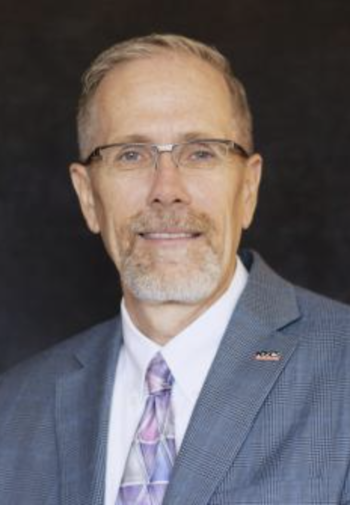
Dr. Rod Flanigan
One of the most exciting aspects of NDSCS is its residential campus experience, a rarity among community colleges. Dr. Flanigan highlights, “In the fall of the past academic year, nearly 1,000 students lived on campus, creating a vibrant community.”
The unique culture is often described as a “two-year school with a four-year feel.” The college boasts a 500-seat auditorium for performing arts and highly competitive athletic programs, including football, baseball, basketball for men and basketball, volleyball, and softball for women, adding to the excitement and intrigue of campus life.
Overcoming enrollment challenges
Despite the vibrant campus life, NDSCS has faced challenges, particularly enrollment. However, recent trends have shown a positive shift, reflecting the growing recognition of NDSCS’s quality education and unique offerings.
Dr. Flanigan shares, “Our enrollment has rebounded over the last few years. We’re up about 18% over the past two years.” This is a promising trend amidst an anticipated “enrollment cliff” affecting many institutions nationwide. Interestingly, North Dakota is an exception, with increasing numbers of high school graduates, providing a favorable outlook for future enrollments at NDSCS.
Financial stability and infrastructure investments
Financially, NDSCS is in a strong position, largely due to the diligent efforts of faculty and staff in recruitment and legislative engagement. The biennial legislative sessions have been favorable, and the college’s focus on CTE programs has garnered support from legislators who recognize the direct impact on the workforce. Dr. Flanigan notes, “Our electrical program celebrated its 100th anniversary last summer, attracting alumni from around the world, including a gentleman from Denmark.”
The sense of community and belonging is a significant aspect of NDSCS’s identity. Dr. Flanigan, who has been with the college for two years, shares his experience, “Listening to alumni who come back and always consider NDSCS home is amazing. Whether they moved on to four-year institutions or entered the workforce, their connection to NDSCS remains strong.”
Over the past two decades, NDSCS has consistently invested in its infrastructure. Significant projects include the complete renovation of the allied health building and Old Main, the oldest building on campus. Additionally, the diesel building has been expanded multiple times, including a current addition and renovations to the tech center for the agriculture program.
Proactive recruitment partnerships
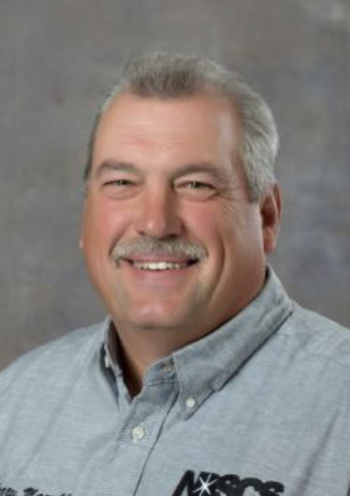
Terry Marohl
Dr. Flanigan and Mr. Marohl discuss how business and industry partners are now involved in the recruitment process at high schools, working to steer students toward programs at NDSCS. “We have companies like Sanford Medical, John Deere, Case IH, Komatsu, Caterpillar, Haas, and Trane recruiting at the high school level,” Marohl says. The proactive approach ensures students know about career opportunities and pathways from education to employment.
The nursing program faces similar opportunities. The demand for allied health professionals is intense, and many students have job offers before graduation. Smith shares, “Our advisory boards say we need to put out more of the same quality, but recruiting those students to go into these areas is difficult.” Paid internships during the allied health programs often lead directly to job offers, highlighting the seamless transition from education to employment that NDSCS provides.
The result of the efforts is a highly successful model in which most NDSCS students have secured employment before graduation. Marohl reflects on its transformation: “Previously, everyone was on their own when you finished school. Now, dealers come to us before graduation asking to talk to our graduates, but most already have jobs lined up.”
Hands-on training
The partnerships North Dakota State College of Science (NDSCS) has forged with local medical centers and hospitals are critical to its success, particularly within its allied health programs. Smith explains the essential relationships, “We work with quite a few in the area,” she explains. Key partners include St. Francis Medical Center in Breckenridge, Sanford Health, Essentia Health out of Fargo-Moorhead, and Lake Region Healthcare in Fergus Falls. The partnerships are not just confined to urban centers but extend to satellite clinics and hospitals in rural towns, ensuring a wide reach and diverse opportunities for students.
The collaborations address a significant challenge: staffing healthcare facilities in rural areas. “They are looking to ‘grow their own,'” Smith states, referring to the efforts to train local students who will hopefully return to their communities to work. The strategy benefits not only the students, who gain valuable hands-on experience, but also the rural healthcare providers, who struggle to attract qualified professionals.
Competitive advantages
Dr. Flanigan emphasizes the importance of clearly articulating the college’s competitive advantages to prospective students, especially as the number of traditional college-age students continues to decline. “The more we can demonstrate our competitive advantage, the easier it will be for us to recruit those students,” he states. NDSCS maintains strong connections with industry partners through mandatory advisory council meetings for each program, held twice a year. These meetings ensure that the curriculum remains relevant and aligned with industry needs.
Smith highlights the unique aspects of the allied health programs. “Our students have been in the industry since the first semester,” she explains. This early hands-on training, often missing from other programs, ensures that NDSCS students are well-prepared for their careers. The dental program, for instance, features an on-campus clinic where students provide care to the community, gaining practical experience while serving others.
The geographical reach of NDSCS students is noteworthy. While many students come from North Dakota, South Dakota, and Minnesota, the college also attracts students from as far away as Montana, Wyoming, Illinois, Wisconsin, Texas, and Ohio. The broad appeal is a testament to the quality and reputation of the programs offered.
Workforce preparation
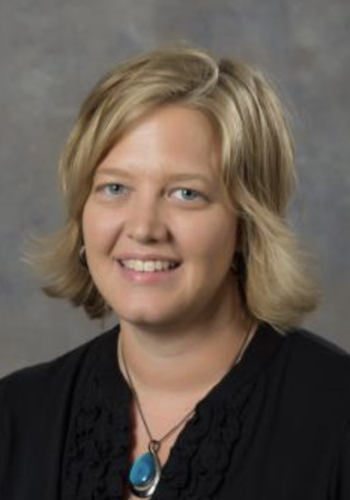
Debra Smith
The intensive, hands-on programs result in graduates being exceptionally well-prepared to enter the workforce. “Our students, when they graduate, hit the floor running,” Marohl says. By finishing their programs, students have gained valuable experience and often secured employment. Many are even sponsored by employers who cover their tuition and fees, recognizing the return on investment in nurturing future employees.
Marohl explains that this model transforms the traditional hiring process: “It’s far different than going to a career fair and interviewing somebody for one hour.” Instead, employers have a two-year period to assess and develop students, leading to a seamless transition into full-time employment upon graduation.
A vision for the future
Dr. Flanigan introduces the college’s new mission statement: “NDSCS: The Science of Learning by Doing.” This statement captures the essence of the college’s educational philosophy and highlights its focus on practical, hands-on experiences that equip students for the workforce.
One significant development on the horizon is the expansion of the diesel building and the agriculture program, funded by a $20 million award from the last legislative session. The enhancements are part of a broader strategy to expand and modernize the campus facilities.
NDSCS will request additional funding to reinvent its library during the upcoming legislative session. The goal is to transform it into a versatile space that supports various programs. One option is to move the occupational therapy and pharmacy tech groups to the new library, thereby freeing up space for dental and nursing program expansions.
Additionally, there are plans to update the student housing facilities. “We have some old dorms we’re going to tear down,” Dr. Flanigan states, noting that the new designs will reflect modern student preferences. This is part of a long-term strategic plan to reimagine the campus over the next 10 to 20 years, ensuring it meets the evolving needs of students.
Expanding technical education
Technological advancements are at the forefront of NDSCS’s educational offerings. Marohl highlights the importance of staying ahead of industry trends. “We’re on the cutting edge of what’s happening in business and industry,” he explains. This includes initiatives like vehicle electrification and advanced GPS and auto guidance systems in civil engineering. The UAS (Unmanned Aerial Systems) program is a prime example, with students using high-tech drones for topographical mapping in partnership with the South Dakota School of Mines.
Moreover, NDSCS has secured a $300,000 grant from the FAA to start an aviation maintenance program, further expanding its technical education repertoire. The nursing program, led by Smith, is also growing, with a new cohort of students starting in the Fargo area, reflecting the college’s strong ties to regional healthcare providers.
Competitions and national-level engagements are a significant part of student life at NDSCS. The college avidly participates in SkillsUSA, hosting state competitions and sending students to nationals. This year, NDSCS will send 15 students to the national SkillsUSA competition in Atlanta, Georgia. Additionally, two students from NDSCS will represent the United States in the World Skills Competition in Lyon, France, in the plumbing and diesel heavy equipment categories.
Dr. Flanigan beautifully summarizes the spirit of NDSCS: “It’s a great time to be a student. It’s a great time to be a Wildcat.”
AT A GLANCE
North Dakota State College of Science
What: The second oldest community college in the nation, preparing students for successful careers through career and technical education (CTE) and strong industry partnerships.
Where: The North Dakota State College of Science (NDSCS) is a public college in Wahpeton, North Dakota.
Website: https://www.ndscs.edu/
